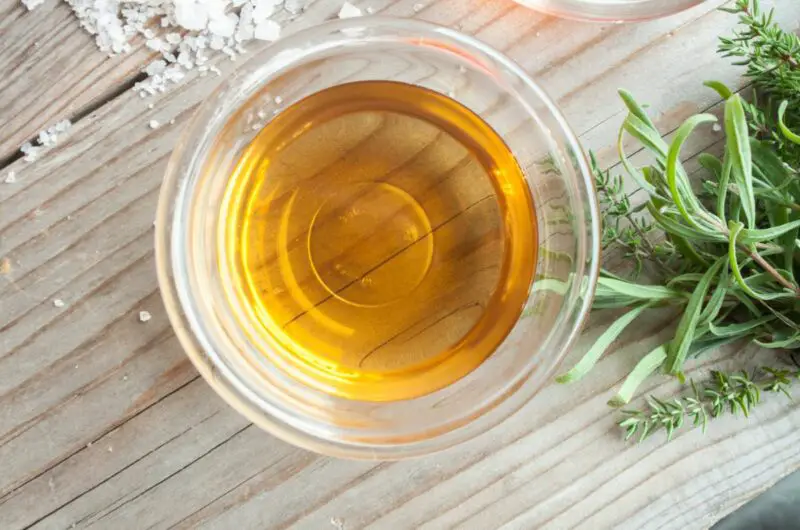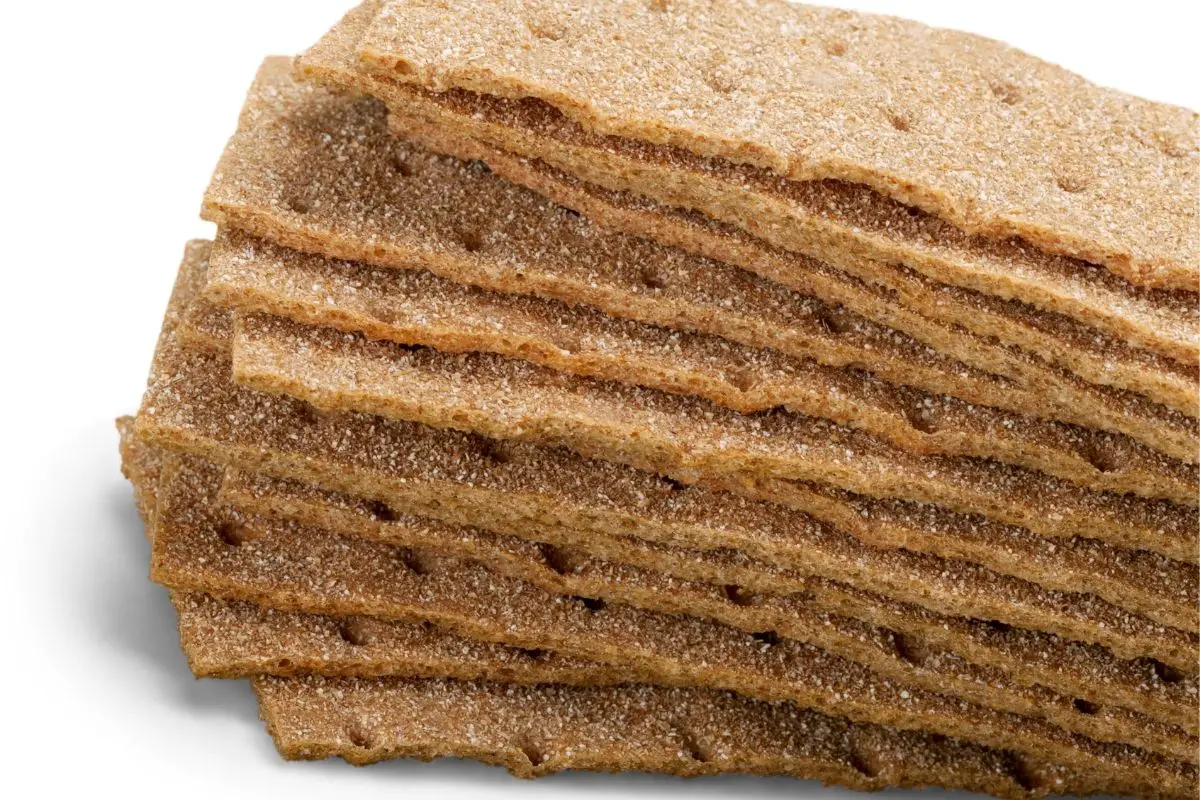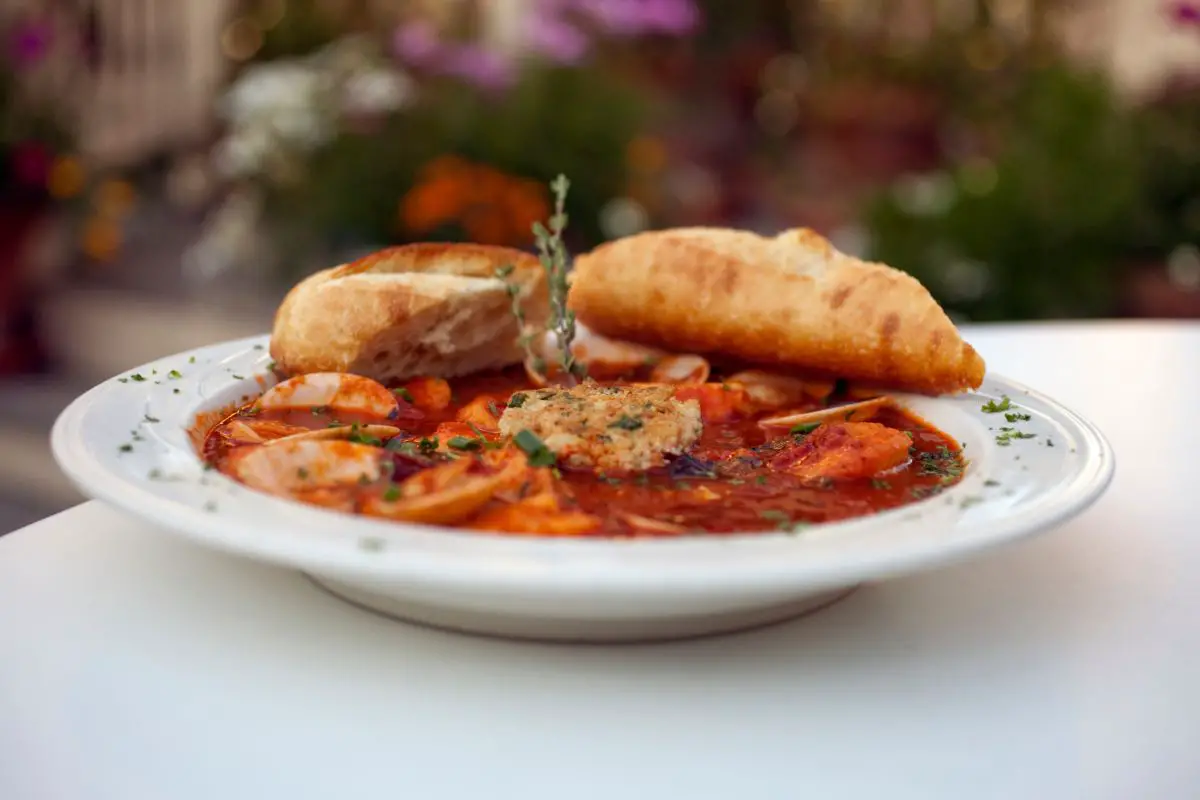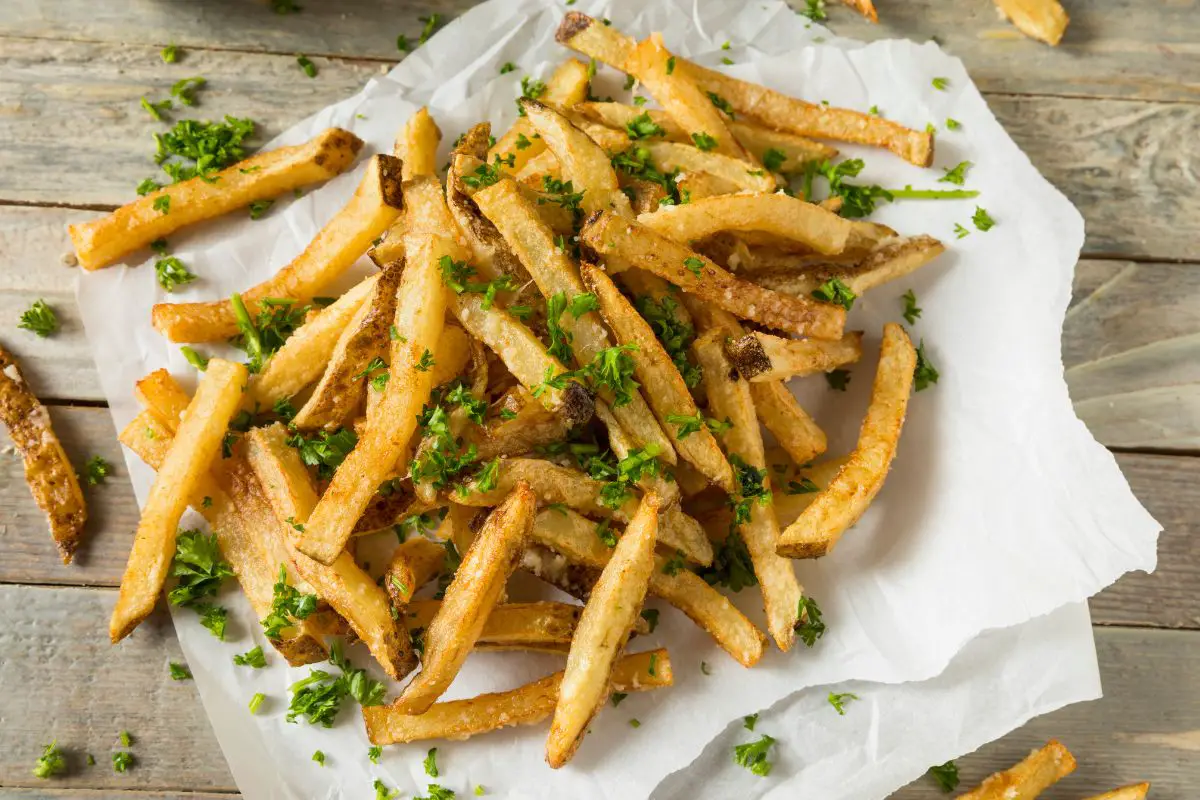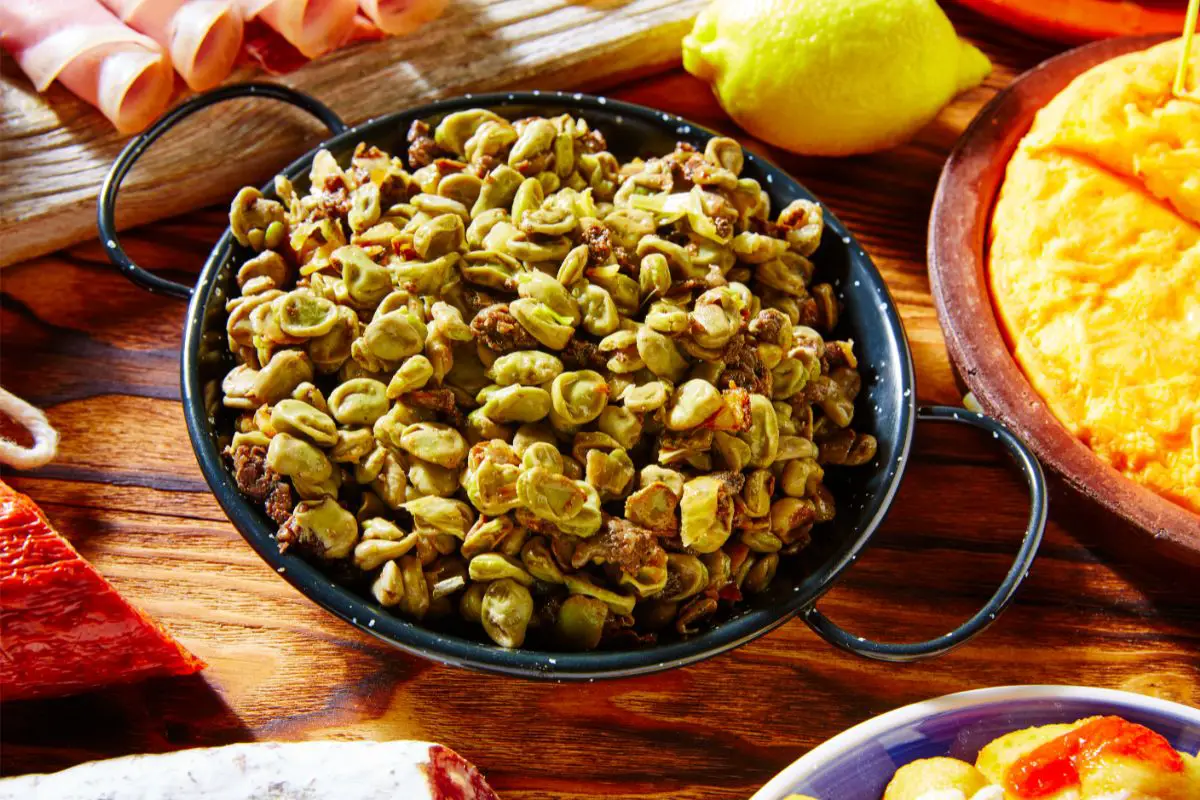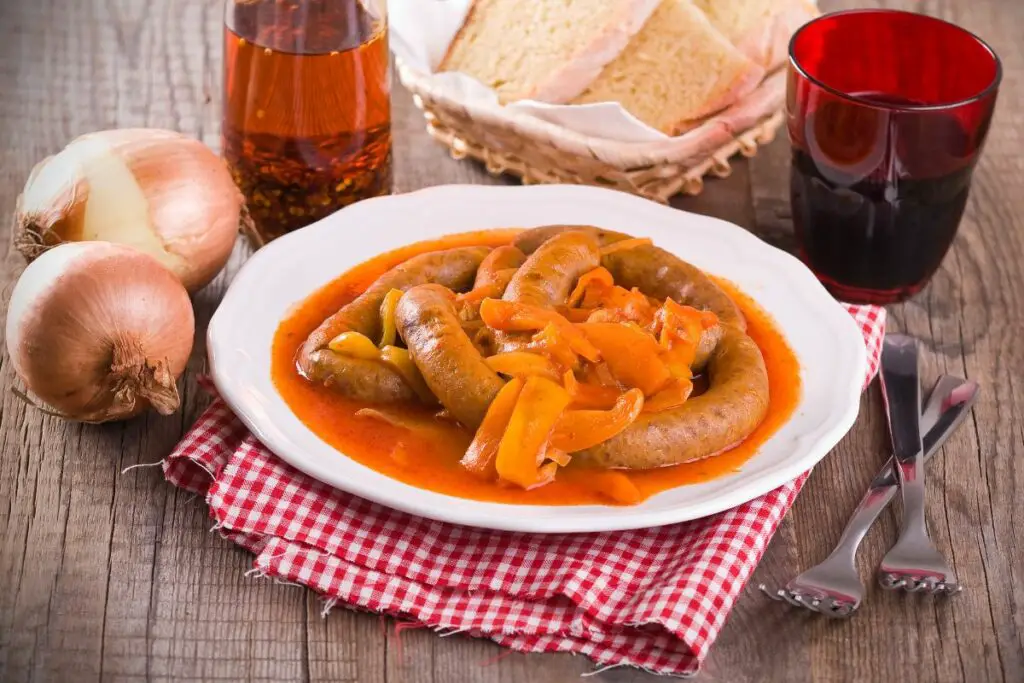Vinegar is used in many different recipes. It’s a common ingredient in salad dressings as well as other dishes.
There are a large number of different vinegar varieties and they all differ in their taste and the strength of the acid included in the vinegar.
One of the more popular types of vinegar is balsamic vinegar, and white balsamic vinegar is a common variation. It has a very rich flavor and can add an intense flavor profile to your dishes, dressings, and sauces.
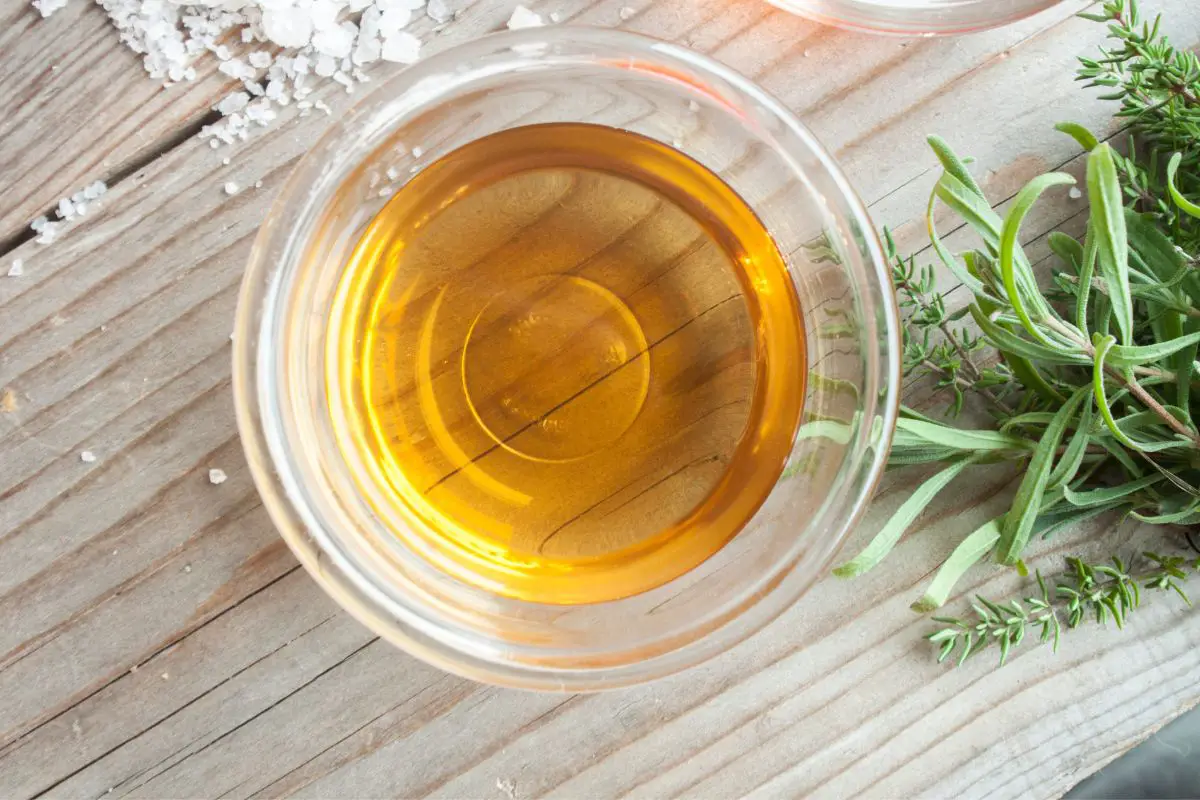
However, white balsamic vinegar might not be a standard staple in your kitchen. If you don’t have any white balsamic vinegar in your cupboards and your recipe calls for some, you will need to find a substitute.
Thankfully, there are several options you can use to substitute white balsamic vinegar if you don’t have any available. In this article, we will introduce the 10 best white balsamic vinegar substitutes you can try today.
10 Best Substitutes For White Balsamic Vinegar
Let’s now look at some of the best substitutes for white balsamic vinegar.
1. Balsamic Vinegar
This is the easiest and most straightforward substitute that you can make for white balsamic vinegar. It’s the closest substitute you can find and should be your first choice for a white balsamic vinegar substitute.
Both white balsamic vinegar and regular balsamic vinegar are made from Teribannoo grapes so they share several properties.
The main difference between them is white balsamic vinegar is cooked at a high pressure to prevent it from caramelizing.
Balsamic vinegar, on the other hand, is kept in barrels for at least 12 years in order for it to caramelize. The caramelized balsamic vinegar usually has some additional flavors that it absorbs from the wood of the barrel.
Balsamic vinegar has a deeper brown color than white balsamic vinegar and its texture is a little thicker as well.
In the case of most recipes, you can just switch from white balsamic vinegar to balsamic vinegar without any issue.
2. White Wine Vinegar
Another type of vinegar that you can switch for white balsamic vinegar is white wine vinegar. White wine vinegar is a more common ingredient so you may have some of this in your kitchen already.
White wine vinegar is made from fermented white wine. During the fermentation process, the white wine oxidizes and then turns acidic to make it into vinegar.
This process and the basis being white wine gives white wine vinegar a fruity flavor. It has a light and golden color so you can use it in a variety of different dishes without any noticeable effects.
White wine vinegar can be used as a substitute for white balsamic vinegar in almost every circumstance.
It’s especially ideal for sauces, salad dressings, and for marinating meat. You can use white wine vinegar in the same quantities as white balsamic vinegar.
3. Red Wine Vinegar
After introducing white wine vinegar as a substitute for white balsamic vinegar, it only makes sense to next introduce red wine vinegar!
Red wine vinegar is made from red wine that has been fermented and then bottled. It’s left to age naturally and this process leads to it becoming acidic.
As most red wines taste fruity and have different fruity flavors to them, this carries over to the flavor of red wine vinegar as well.
Many homes have red wine vinegar already so this may be a convenient substitute for you.
It doesn’t taste exactly like white balsamic vinegar and you may need to add a little sugar to it in order to get a closer flavor.
We recommend using red wine vinegar in recipes such as stews, dressings, and some marinades. It can be used in other recipes as well.
4. Rice Wine Vinegar
This is another option for a vinegar substitution. It’s made by fermenting the sugars found in rice into alcohol, and then it is fermented again to make acid.
Rice wine vinegar has a milder taste than white balsamic vinegar as the acidic level is lower. The flavors are pretty similar, however, so it works very well as a straight substitute for white balsamic vinegar.
It’s best used in recipes such as sauces and salad dressings. If you have rice wine vinegar, you can use it in place of white balsamic vinegar in virtually any recipe.
5. Cider Vinegar
From wine to cider! As you might expect, cider vinegar has flavors of apples running through it and this is because it is made from fermented apple cider.
If you’re concerned with finding a healthier substitute for white balsamic vinegar, then cider vinegar is a good option.
It’s healthier than many other options that are available and comes with its own health benefits and vitamin content.
Cider vinegar can be substituted for white balsamic vinegar in almost every recipe that calls for white balsamic vinegar.
It’s best in salads and dressings and combines well with the other ingredients that are used in these recipes.
6. Chinese Black Vinegar
Like our previous entry, this is also made from a type of rice. In the case of Chinese black vinegar, however, it is made from sticky black rice.
As the name of the rice and the vinegar suggests, the resulting vinegar has a distinctive black color when the fermentation has finished.
In most cases, you can use Chinese black vinegar in equal measurements to white balsamic vinegar. It works especially well in dipping sauces, soups, and stir-fries.
If you use Chinese black vinegar in salad dressings, you may want to use a little less as the black color can affect the finished article.
7. Golden Balsamic Vinegar
Like the other varieties of balsamic vinegar, this is also made from grapes. This makes it a great substitute for white balsamic vinegar as it is rather similar in taste and acidity.
Golden balsamic vinegar is especially close in flavor and taste to red balsamic vinegar but it works just as well as a substitute for white balsamic vinegar.
The two can easily be substituted for each other in virtually every recipe.
Golden balsamic vinegar is another healthy option for a substitute. We especially recommend it for marinating meats, as part of salad dressings, or even to be sprinkled straight over dishes that have been roasted.
8. Sherry Vinegar
Sherry is a fortified wine that is made from white grapes and this makes sherry vinegar a great substitute for white balsamic vinegar. They’re both made from grapes and have several similar properties.
Sherry vinegar is also similar in taste to red wine vinegar. It’s a little sweeter than many other options on this list and also includes a rich nuttiness.
It is more acidic than many other types of vinegar on this list, however, including white balsamic vinegar.
You need to be careful not to use too much sherry vinegar as it can overpower the flavors that are in your cooking.
We recommend using it sparingly and adding a few more drops at a time if it is needed.
Sherry vinegar is a great substitute in most recipes that require white balsamic vinegar. It’s especially suitable for salsas, salad dressings, and even fish sauces.
9. Champagne Vinegar
It may not be surprising to know that champagne vinegar is very similar to white wine vinegar.
Champagne is a form of white wine after all, so it only makes sense that the two would be quite similar.
Champagne vinegar is made from champagne that has been fermented. It has a taste that is sweet and light but also has a tart acidity to it.
The flavors of champagne vinegar aren’t as strong as those in white balsamic vinegar so you may need to use a little more champagne vinegar than white balsamic vinegar.
Be careful that you don’t use too much, however, and don’t get heavy-handed when you add it.
Champagne vinegar is an especially suitable substitute in salad dressings. The lighter flavors also make it ideal for dressings for both pork and chicken.
10. Malt Vinegar
This is one of the most common types of vinegar you can find. If you only have one type of vinegar in your kitchen, it’s likely that it’s malt vinegar!
As the name suggests, malt vinegar is made by malting barley. The resulting ale is then fermented and this makes the vinegar.
It has a taste profile that is similar to regular balsamic vinegar but is a little stronger. This means that when using it as a substitute for white balsamic vinegar, you should reduce the quantities used.
If you don’t, you will find that the flavor and sweetness will be too overpowering. The color of malt vinegar can vary but it is always a shade of brown.
Final Thoughts
In this article, we introduced the 10 best white balsamic vinegar substitutes. White balsamic vinegar is included in many different recipes and is especially found in recipes for salad dressings and salsa.
The best substitutes for white balsamic vinegar are different varieties of vinegar. As many of them are created from the same sources as white balsamic vinegar, they can largely be used as straight substitutes in the same quantities.
A couple of the options, however, do need to have their amounts adjusted because their flavors are either stronger or lighter than white balsamic vinegar.
Make sure you take this into consideration if you opt to use these substitutions.
The 10 Best White Balsamic Vinegar Substitutes To Try Today
Course: Substitutes4
servings30
minutes40
minutes300
kcalIngredients
Balsamic Vinegar
White Wine Vinegar
Red Wine Vinegar
Rice Wine Vinegar
Cider Vinegar
Chinese Black Vinegar
Golden Balsamic Vinegar
Sherry Vinegar
Champagne Vinegar
Malt Vinegar
Directions
- Decide on what substitute you need
- Pick a substitute from the list above
- Read what you need to substitute with
- Create the recipe and enjoy
Recipe Video
https://www.youtube.com/watch?v=Sx-7K_sNlOIVideo can’t be loaded because JavaScript is disabled: WHAT IS BALSAMIC VINEGAR? / Everything you need to know about Balsamic Vinegar (https://www.youtube.com/watch?v=Sx-7K_sNlOI)- What Exactly Do Chickpeas Taste Like? Is There A Distinct Flavor? - September 30, 2023
- Top 11 Low Carb Options at Sonic Drive-In for Keto Diet - September 30, 2023
- What Should You Serve Alongside Potato Salad? 8 Incredible Side Dishes - September 30, 2023

